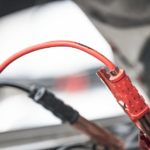Car oil is a vital component in ensuring the smooth operation of your car. It helps to lubricate the engine, reduce friction, and prevent corrosion. Regular oil changes are necessary to ensure that your car’s engine is functioning at its best. So take a seat and prepare to rev your engines because it’s time to examine the dangers of avoiding routine visits to the mechanic!
What Is Oil, and What Are Its Functions?
Car oil, also known as engine oil, is a viscous liquid that is used to lubricate the internal combustion engine of a car. The main function of car oil is to reduce friction between moving parts of the engine and prevent them from wearing out. It also helps to cool the engine by absorbing heat and carrying it away from the engine’s hot parts.
Importance of Changing Car Oil
Regular oil changes are essential to keep your car running smoothly. Over time, car oil breaks down, becomes less effective, and loses its lubricating properties. As a result, the engine parts start to rub against each other, causing friction and heat. This can lead to engine damage and even complete engine failure.
There are several benefits to changing your car oil regularly. It helps to:
- Maintain engine performance
- Improve fuel efficiency
- Extend the life of the engine
- Reduce emissions
- Prevent costly repairs
What Happens If You Don’t Change Your Car Oil?
Car maintenance is a crucial aspect of owning a vehicle, and one of the most important things you can do for your car is change its oil regularly. However, many car owners may neglect or forget this critical aspect of car maintenance, which can lead to severe consequences. In this article, we will explore what happens if you don’t change your car oil and the potential risks associated with it.
Explanation of How Oil Breaks Down Over Time
Before we delve into the consequences of not changing your car oil, it’s essential to understand how oil works in a car engine. The primary function of engine oil is to lubricate the various components of the engine to prevent metal-to-metal contact, which can cause wear and tear over time. Additionally, oil helps to cool the engine by absorbing and dissipating the heat generated during combustion.
Over time, the oil in your engine breaks down due to exposure to heat, friction, and contaminants. As a result, the oil loses its lubricating properties, making it less effective in protecting the engine components from wear and tear.
Accumulation of Dirt and Debris in Oil
As the oil breaks down, it also accumulates dirt, debris, and other contaminants that can clog the oil passages and reduce its effectiveness in lubricating the engine. The dirt and debris can come from several sources, including dust, metal shavings, and combustion byproducts. When this happens, the oil becomes thick and sludgy, making it difficult for the oil pump to circulate it properly.
Engine Overheating Due to Lack of Proper Lubrication
One of the most immediate consequences of not changing your car oil is engine overheating. When the oil breaks down and loses its lubricating properties, the engine components rub against each other, creating friction and heat. Over time, the engine can overheat and cause significant damage to the engine block, cylinder walls, and pistons.
Engine Components Wear Out Faster
The engine components, such as the bearings and pistons, rely on the oil’s lubricating properties to operate smoothly. When the oil breaks down, these components can experience increased wear and tear, leading to premature failure. Over time, the lack of lubrication can cause severe damage to the engine, requiring costly repairs or even a complete engine replacement.
Reduced Fuel Efficiency and Power Output
When your car’s engine is not lubricated correctly, it has to work harder to operate, which can lead to reduced fuel efficiency and power output. The engine has to consume more fuel to generate the same amount of power, leading to increased fuel consumption and reduced fuel economy. Additionally, the engine may not produce the same amount of power as it did before, making it harder to accelerate or climb hills.
Cost of Repairing Engine Damage Caused by Lack of Oil Changes
The cost of repairing engine damage caused by the lack of oil changes can be significant. Depending on the severity of the damage, you may need to replace the entire engine, which can cost thousands of dollars. Even if you catch the issue early, repairing the damage can still be expensive, and it’s always better to prevent the damage in the first place by changing your car oil regularly.
Signs That Your Car Needs an Oil Change
Dashboard Warning Lights
One of the most obvious signs that your car is due for an oil change is the appearance of warning lights on the dashboard. Most modern cars are equipped with oil pressure sensors that will trigger a warning light or message on the dashboard if the oil pressure drops too low. This is a sign that the engine is not getting enough oil, and you should stop driving the car immediately to avoid further damage.
Unusual Engine Sounds
If your car’s engine is making unusual sounds, it could be a sign that the oil needs changing. When oil breaks down or becomes contaminated, it loses its ability to lubricate and protect the engine’s moving parts. This can cause increased friction, which can lead to knocking, ticking, or other unusual sounds coming from under the hood. If you hear any unusual noises, it’s important to have your car checked out by a mechanic as soon as possible.
Increased Exhaust Emissions
Another sign that your car needs an oil change is an increase in exhaust emissions. When the engine isn’t properly lubricated, it has to work harder to function, which can lead to an increase in exhaust emissions. This can be harmful to the environment, as well as a sign that your car is not running efficiently. If you notice an increase in exhaust emissions, it’s a good idea to have your car checked out by a mechanic.
Smell of Burning Oil
If you notice a burning oil smell coming from your car, it’s a sign that the oil is old and needs to be changed. As oil breaks down, it can become thick and gunky, which can cause it to burn and produce a strong odor. If you notice a burning oil smell, it’s important to have your car checked out as soon as possible, as this could be a sign of serious engine damage.
Visible Dirt or Debris in the Oil
Finally, if you check your car’s oil and notice visible dirt or debris in the oil, it’s a sign that it needs to be changed. Over time, oil can accumulate dirt, dust, and other contaminants, which can cause it to become less effective at lubricating and protecting the engine. If you notice any visible dirt or debris in the oil, it’s important to have your car’s oil changed as soon as possible to avoid engine damage.
DIY vs Professional Oil Changes
When deciding whether to do a DIY oil change or use a professional service, the cost is certainly a consideration. While a DIY oil change may initially seem cheaper, you need to factor in the cost of the tools and equipment you’ll need. Additionally, if you make a mistake during the oil change process, it can lead to costly repairs down the road.
On the other hand, a professional oil change may be more expensive upfront, but you’ll have the peace of mind that comes with having a trained professional perform the service. Plus, many oil change services offer additional inspections and recommendations, which can help you catch any potential issues before they become major problems.
Ultimately, the decision between a DIY or professional oil change in Dubai comes down to personal preference and budget. If you’re comfortable with changing your own oil and have the necessary tools, a DIY oil change can be a cost-effective option. However, if you’re not familiar with the process or want the added benefits of professional service, it may be worth the additional cost.
FAQs
How often should you change oil in a car?
The frequency of oil changes for a car can depend on several factors, such as the type of car, the driving conditions, and the type of oil used. However, as a general guideline, it is recommended to change your car’s oil every 5,000 to 7,500 miles or every six months, whichever comes first. Some car manufacturers may have specific recommendations for oil change intervals, which can be found in the car owner’s manual.
What happens if oil change is overdue?
If an oil change is overdue, several negative consequences can occur. The engine oil lubricates and cools the moving parts of the engine. Over time, the oil breaks down and becomes less effective at performing these essential functions. When the oil becomes old and dirty, it can cause the engine to overheat, which can lead to engine damage.
The longer the oil is left unchanged, the more debris and contaminants accumulate in the oil, which can lead to increased engine wear and tear, reduced fuel efficiency, and potential engine failure. Neglecting to change the oil can also lead to the buildup of sludge in the engine, which can clog the oil passages and restrict oil flow to vital engine parts.
How much does it cost to put oil in your car in UAE?
The cost of putting oil in your car in UAE can vary depending on the type of oil you choose, the make and model of your car, and where you get the oil changed.
On average, a standard oil change with conventional motor oil can cost around AED 100 to AED 150 in the UAE. However, synthetic motor oil can be more expensive, with prices ranging from AED 200 to AED 400 or more depending on the brand and type of oil.
It is important to note that these prices are only estimates, and the actual cost may vary depending on the location and service provider. It is always recommended to check with the service provider for accurate pricing and to ensure that you are getting a quality oil change service.
Conclusion
As an oil change service provider, we cannot stress enough the importance of regular oil changes for your vehicle. Neglecting to change your car’s oil can have serious consequences, including engine damage and decreased performance. Regular oil changes can save you money and prevent costly repairs in the long run. Don’t wait until it’s too late, bring your car in for an oil change today, and let us help keep your engine running smoothly for years to come.
For car oil change services in Dubai UAE, contact us at +971505073124.





